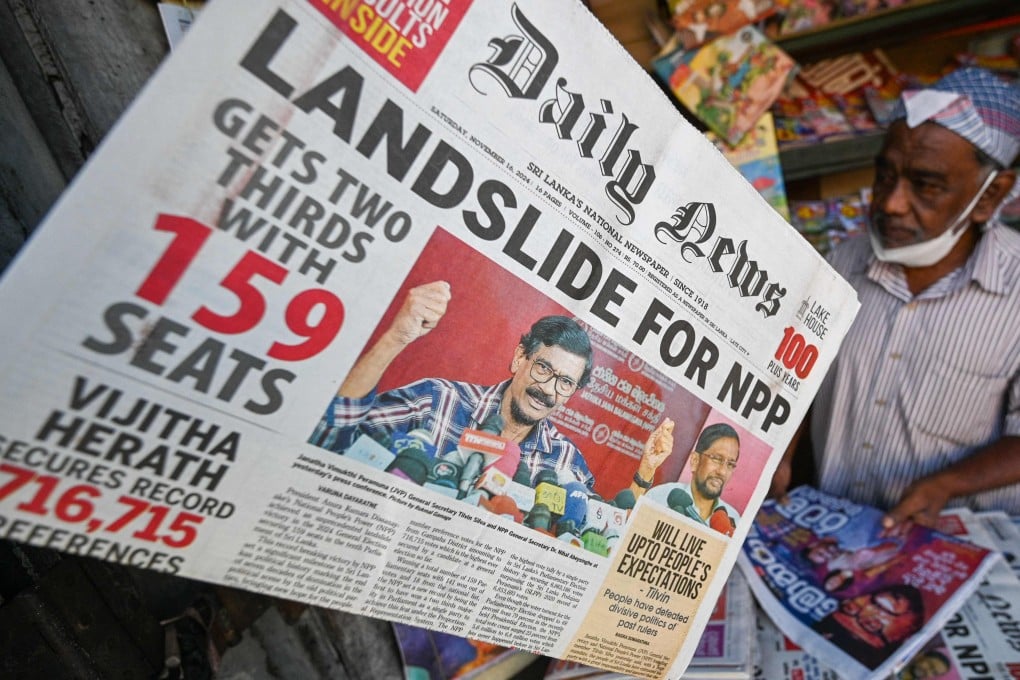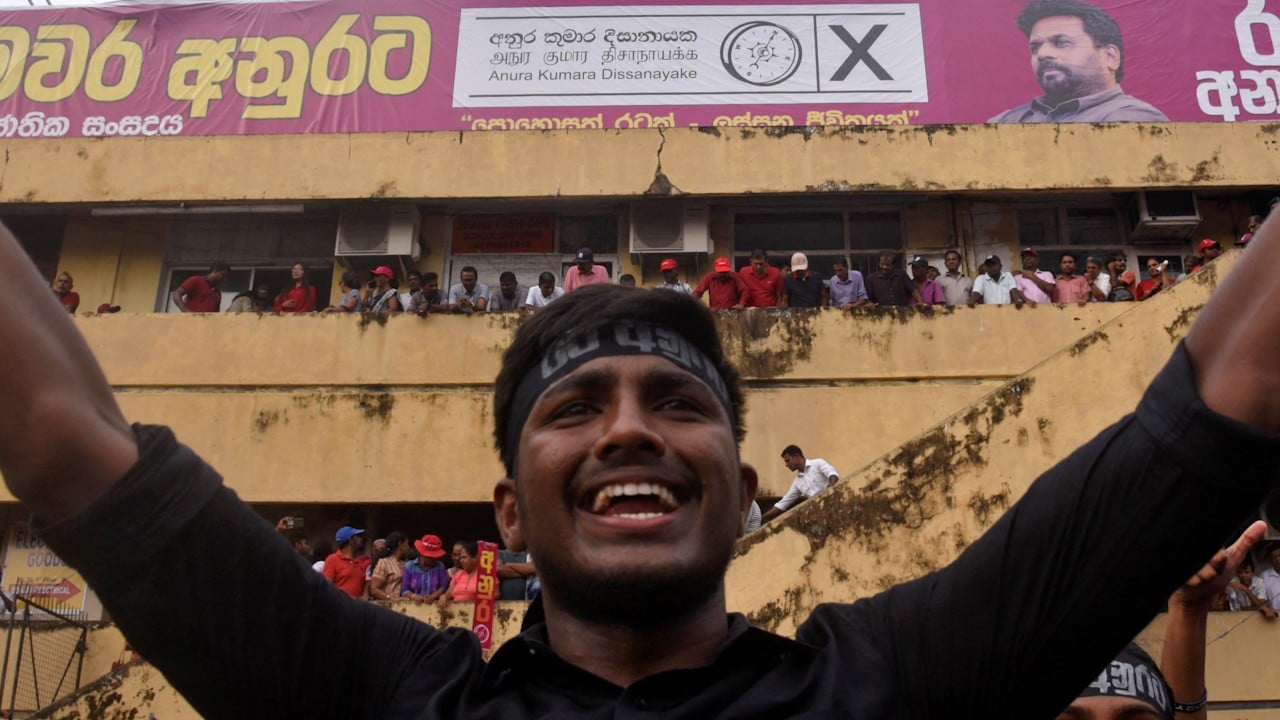Advertisement
Opinion | In Sri Lanka, China and India have a chance to join hands
The island nation could benefit from the expertise of Beijing and New Delhi, which would do well to help Colombo resist Western influence
Reading Time:4 minutes
Why you can trust SCMP
1

The decisive victory of President Anura Kumara Dissanayake’s National People’s Power (NPP) alliance in the November 14 parliamentary election is expected to usher in a new era of clean government and socioeconomic empowerment for the Sri Lankan people. However, much depends on whether the two Asian powers, India and China, and a global power, the United States, can act as partners in helping the Sri Lankan government implement its ambitious reforms.
Advertisement
After Dissanayake narrowly won the presidential election on September 21, there were questions over whether he would be able to implement his ambitious election platform without a working majority in parliament. His party had only three members of parliament, leading Dissanayake to form a three-member interim cabinet with each minister sharing about 10 ministries. Because the NPP was elected with only 42 per cent of the vote, opposition parties were quick to claim that Dissanayake did not have the support of the majority of voters.
Therefore, Dissanayake quickly dissolved parliament and called for a snap general election on November 14, where he was able to increase the NPP vote by around 20 percentage points and win a two-thirds majority with 159 seats. His party has virtually wiped out the opposition, expect for the Samagi Jana Balawegaya (SJB) party led by his presidential rival Sajith Premadasa, which came a distant second with 40 seats.
The emphatic victory gives the NPP unprecedented powers to draft and pass legislation, and even amend the constitution. However, a more important outcome of the election with long-term implications is that the NPP won seats in the Tamil-dominated electorates in the north and east of the country.
It won three seats in the Tamil bastion of Jaffna. This is the first time since the ethnic conflict between Tamils and the Sinhalese erupted in the early 1980s that a party from the south has won seats in Jaffna. The NPP fielded several Tamil candidates, and it also won seats among the electorates dominated by Tamil tea estate workers in the central hill country.
Advertisement
Shortly after the official results were declared, Tilvin Silva, general secretary of the Janatha Vimukthi Peramuna (JVP) which leads the NPP coalition, acknowledged the significance of the Tamil vote. He said that “the people of our country have rejected communalism” and that “the old politics based on communalism and extremism has ended”. He thanked the people of the north, east and the plantations for joining hands with the south.

Advertisement

